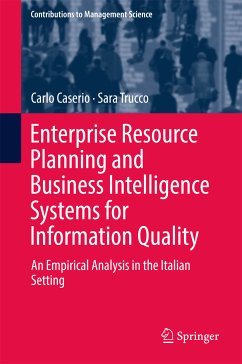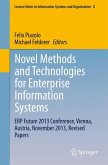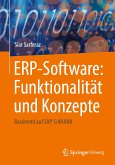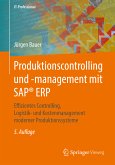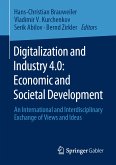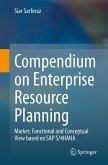This book analyses the role of Enterprise Resource Planning (ERP) and Business Intelligence (BI) systems in improving information quality through an empirical analysis carried out in Italy. The study begins with a detailed examination of ERP features that highlights the advantages and disadvantages of ERP adoption. Critical success factors for ERP implementation and post-implementation are then discussed, along with the capabilities of ERP in driving the alignment between management accounting and financial accounting information.
The study goes on to illustrate the features of BI systems and to summarize companies' needs for BI. Critical success factors for BI implementation are then presented, along with the BI maturity model and lifecycle. The focus of the research entails a detailed empirical analysis in the Italian setting designed to investigate the role played by ERP and BI systems in reducing information overload/underload and improving information quality by influencing the features of information flow. The practical and theoretical implications of the study are discussed and future avenues of research are suggested. This book will be of value for all those who have an interest in the capacities of ERP and BI systems to enhance business information quality.
Dieser Download kann aus rechtlichen Gründen nur mit Rechnungsadresse in A, B, BG, CY, CZ, D, DK, EW, E, FIN, F, GR, HR, H, IRL, I, LT, L, LR, M, NL, PL, P, R, S, SLO, SK ausgeliefert werden.

